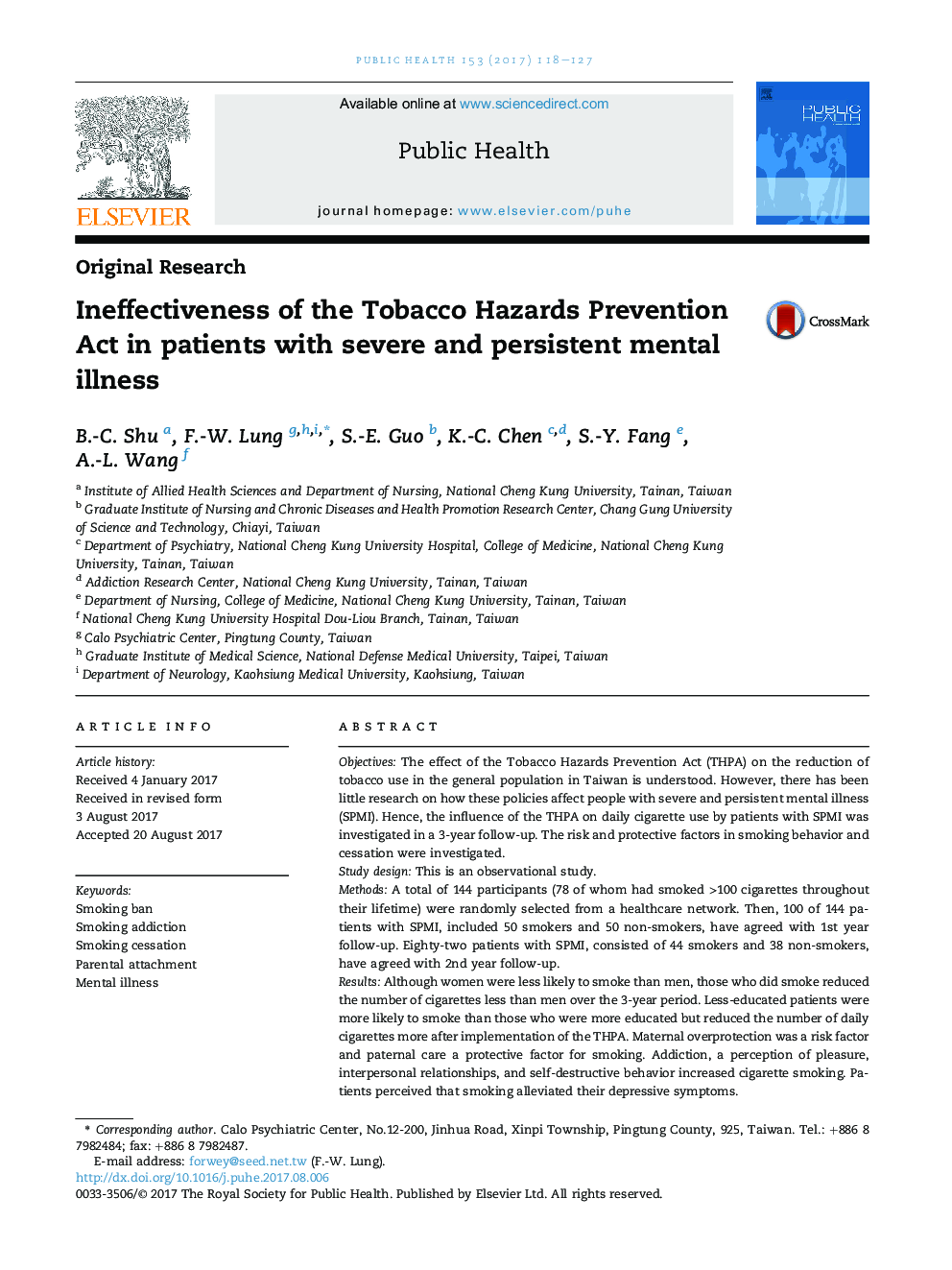| کد مقاله | کد نشریه | سال انتشار | مقاله انگلیسی | نسخه تمام متن |
|---|---|---|---|---|
| 5122653 | 1487190 | 2017 | 10 صفحه PDF | دانلود رایگان |
- Traditional smoking cessation approaches may not be appropriate for persons with severe persistent mental illness.
- Tobacco legislation may not reduce the number of smokers but may reduce the number of cigarettes smoked by smokers.
- The same characteristic in different individuals may manifest in different ways and may contribute smoking behaviors.
ObjectivesThe effect of the Tobacco Hazards Prevention Act (THPA) on the reduction of tobacco use in the general population in Taiwan is understood. However, there has been little research on how these policies affect people with severe and persistent mental illness (SPMI). Hence, the influence of the THPA on daily cigarette use by patients with SPMI was investigated in a 3-year follow-up. The risk and protective factors in smoking behavior and cessation were investigated.Study designThis is an observational study.MethodsA total of 144 participants (78 of whom had smoked >100 cigarettes throughout their lifetime) were randomly selected from a healthcare network. Then, 100 of 144 patients with SPMI, included 50 smokers and 50 non-smokers, have agreed with 1st year follow-up. Eighty-two patients with SPMI, consisted of 44 smokers and 38 non-smokers, have agreed with 2nd year follow-up.ResultsAlthough women were less likely to smoke than men, those who did smoke reduced the number of cigarettes less than men over the 3-year period. Less-educated patients were more likely to smoke than those who were more educated but reduced the number of daily cigarettes more after implementation of the THPA. Maternal overprotection was a risk factor and paternal care a protective factor for smoking. Addiction, a perception of pleasure, interpersonal relationships, and self-destructive behavior increased cigarette smoking. Patients perceived that smoking alleviated their depressive symptoms.ConclusionsThe THPA was ineffective for patients with SPMI. Some factors had different effects on the development of smoking behavior and the cessation process. Understanding the etiology of smoking can help policymakers establish more effective programs for smoking prevention and cessation.
Journal: Public Health - Volume 153, December 2017, Pages 118-127
